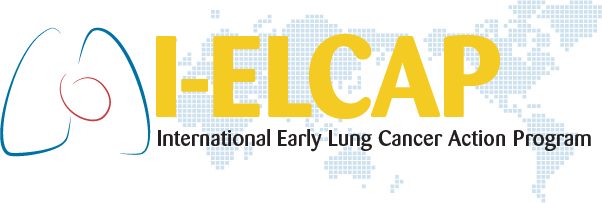Previous Meetings
The 10th International Conference on Screening for Lung Cancer
Friday, April 23, 2004 to Sunday, April 25, 2004
Weill Medical College of Cornell University
New York, NY
United States
Agenda: 10th Conference Agenda
Mission:
The broadest mission of these Conferences is the collective pursuit of avant-garde understanding of the issues surrounding screening for lung cancer, the broadest sub issues being early diagnosis and early intervention. Any given Conference focuses on issues that are particularly topical at the time.
As always, the Conference will provide an update on research and practice of screening for lung cancer, including updates of I-ELCAP protocols and the results on over 25,000 individuals who have had baseline and repeat screening. The Ninth Conference focused on questions of over diagnosis, staging of small early lung cancers and ancillary findings of other smoking-related diseases in the context of CT screening for lung cancer. The Tenth Conference will focus on the future of I-ELCAP at large and particularly the need for research directed to early intervention as a supplement to diagnostic research. It will also introduce the topic of ‘guidelines’ in the sense of what can be said to individuals who are asking their physician for advice about CT screening for lung cancer.
Consensus Statement:
This conference highlighted the progress made since the First International Conference five years earlier in the two broad missions of the conferences — to advance policy-relevant research on early diagnosis of lung cancer and to translate up-to-date understandings into guidelines for practice. To these ends, most notably, the International Early Lung Cancer Action Program (I-ELCAP) consortium was formed to study and develop low-dose CT screening for lung cancer. The institutions participating in the consortium have been using a common protocol for the screening itself, though different entry criteria, so that the resulting data can be pooled to provide up-to-date information for protocol updates, and on the resulting diagnostic distribution (primarily in terms of stage and size) of the diagnosed cases of lung cancer. After sufficiently long follow-up of the diagnosed cases it will be possible to assess the curability of the screen-diagnosed lung cancers. To date, about 27,000 participants have been screened, including in over 16,000 repeat screenings, and more than 400 cases of lung cancer have been diagnosed.
A policy of the I-ELCAP consortium has been to develop and maintain strong ties to all related organizations, to foster inclusive and productive collaborations with them in the efforts to study early diagnosis of lung cancer. We thus have worked with the International Association for the Study of Lung Cancer (IASLC), especially on the development of new staging criteria, with the Specialized Programs of Research Excellence (SPORE) on lung cancer, funded by the National Cancer Institute with particular emphasis on their biomarker research, and with the Cancer and Leukemia Group B (CALGB) in developing a joint trial to assess the effectiveness of standard lobectomy as compared with limited resection for certain subtypes of lung cancer.
The Tenth Conference addressed, for one, currently available information on CT screening for lung cancer, the information to be provided by clinicians to potential screenees about the benefits and risks of such screening. Another topic was optimization of the frequency of screening. It was recognized that there was no standard approach to this, and several were suggested. The latest information on the usefulness of biomarkers of early lung cancer was presented. The Annual Nancy Terner Behrman Lecture stressed the importance of the biomarker topic and of international collaboration in this area. The need for updated guidelines for surgical intervention on small early lung cancers was also addressed. Related to this is the need to update the staging criteria, particularly as some small lung cancers post-surgically show other foci of lung cancer without lymph node metastases and without any invasion of lung parenchymal structures (e.g., bronchi, angiolymphatics, or pleura). No resolution of this staging problem was presented, but members of the Expert Pathology Panel recommended that such cancers be treated as Stage I cases until long-term follow-up is available for new staging criteria to be developed. Advances in CT technology were highlighted by the presentation on micro CT and its potential to provide information about the spread of lung cancer. As always, new approaches to treatment of lung cancer and its precursor lesions were presented. These included inhalation interventions for bronchial pre-malignant lesions, and targeted conformal radiotherapy approaches, limited resection as well as chemotherapy for Stage I lung cancers.
The workshop on intervention research continued its development of protocols of interest, including of the proposed CALGB protocol. Discussion also focused on ongoing intervention research in different countries, particularly in light of the extensive experience with screening for lung cancer in Japan. The workshop on practice guidelines started to address the information that should be provided to relevant clinicians pertaining to decisions about the advisability of CT screening for lung cancer. The I-ELCAP Teaching File workshop reviewed the cases and the approach in the self-test being developed.
Scientific presentations on the second day stimulated much discussion and continued to highlight many important points. These sessions were, again, affirmed as an important part of the conferences.
